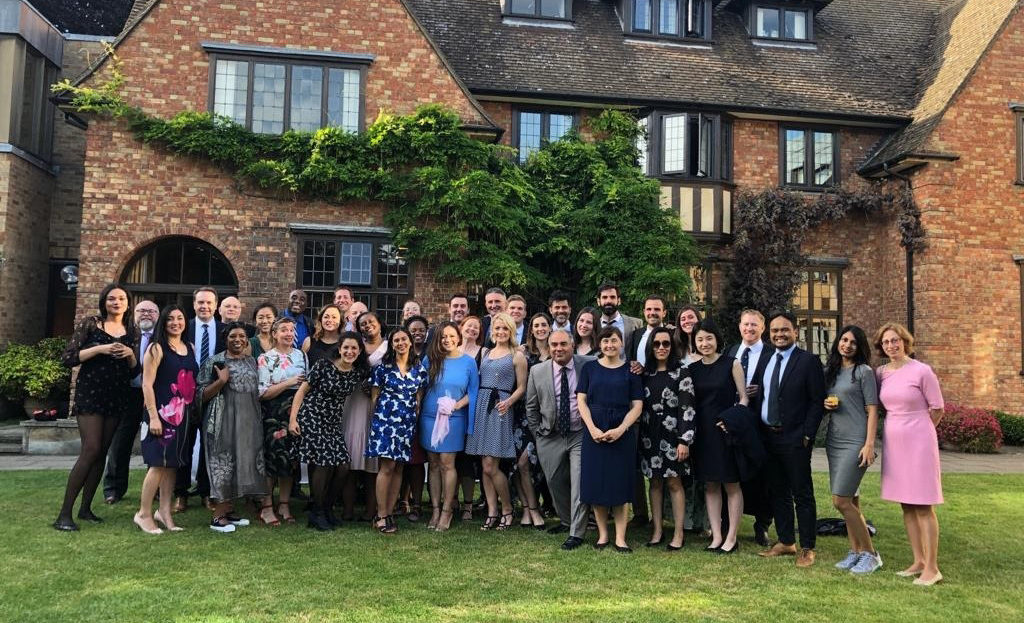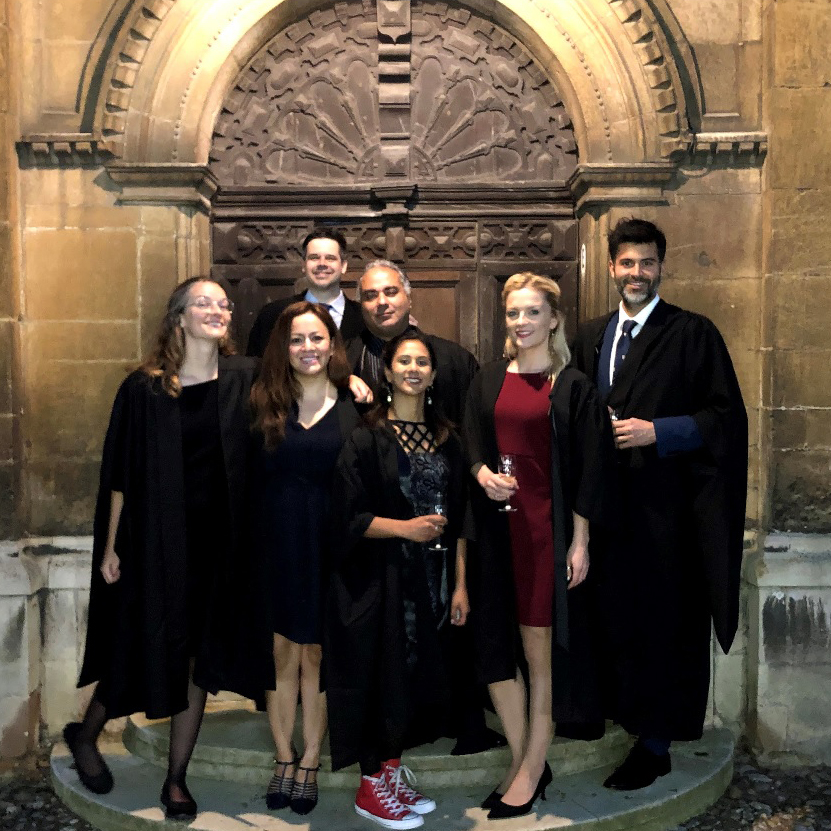
From London to Cambridge
I arrived at London King’s Cross station with mixed feelings. Excited, anxious and uncertain of the journey I was about to embark on for the start of a Masters in Social Innovation at Cambridge Judge Business School, University of Cambridge. For a moment I questioned myself: “why am I even doing this?” Growing up in Haringey, North London (sadly Haringey can be more known for social problems than academic achievements) and being from an immigrant family who left their home for the UK just so their kids could have better lives, I felt fortunate and a sense of responsibility for having this very rare opportunity.
I jumped on the Hogwarts Express at Platform 9¾ to meet my new class friends and take a tour of the city of Cambridge; I was immediately in awe of Cambridge’s beauty, history, and stories of the remarkable individuals who attended the university, including Isaac Newton, Charles Darwin, Stephen Hawking, and Alan Turing. I immediately knew I had arrived somewhere very special and was ready to be a student again!
Back to school
The following morning, my student life began with a bang as I rushed around my college accommodation seeking hot water. The resulting December cold shower ensured I was wide awake and present for my first class (a 12 pence Baked Beans on toast would have made the student experience more complete). It was almost been 10 years since I was last at university, as I had spent the time since focused on my work, but I decided it was time that I returned to the classroom to learn new things. So I enrolled on a Master’s programme in an area I care deeply about; Social innovation is a relatively new subject area (only by name/label), which is focused on looking for solutions and developing knowledge for the world’s biggest problems such as climate change, poverty, inequality, and homelessness (to name a few).
What is social innovation?
The first class kicked off with the professor asking a general philosophical question to the group. I can’t recall the exact question; however, I vividly remember the immediate energised debate it sparked in the room. As hands shot up people were sharing ideas, thoughts, and experiences, and the professors complementing the discussion with their experiences and academic theories. It was a remarkable moment with each person contributing a unique perspective on the topic. With each class this style continued as we regularly found ourselves in deep debates and some contributions led to wider conversations, whilst some led to the silence of deep thoughts, concerns and, at times, sadness.
The complexity of social problems was really coming to life as we tried to understand and comprehend the scale and impact of social problems. With the debates advancing, I started to think about my class as a ‘debate club’ as with each class I attended I was inspired by the power of having an open forum to discuss and share ideas on social issues and potential solutions.
The diversity of humanity
What really made these debates powerful was the diversity of ideas. These ideas were the result of the diverse backgrounds of the class members, which included different races, ethnicities, countries, gender, age, experiences, sectors (government, business, non-profit, and NGOs), industries, and occupations (I’m sure the list can go on). I felt proud to be part of this diverse group, and fortunate to be learning from the different perspectives and ideas each person contributed to the debates. Such as hearing about the differences to be considered when implementing solutions in Latin America, working with indigenous communities, farming practices and climate considerations, public healthcare challenges, NGOs, and global cross-nation perspectives.

However, we also collectively experienced that social issues can be very difficult to discuss. They can be personal, dark, frustrating, and saddening with the impact on people’s lives and can at times leave you feeling helpless due to the difficulty of implementing solutions. As we discussed these issues you could sense the underlying collective gentle care, empathy, and kindness from the group for people affected by social issues. Regardless of the social issue under discussion you could depend on the group to naturally steer the conversation to the human side of the problem and think about what it means for the impacted individuals. This extended beyond the classroom as support networks formed between class members. Living in California I was matched with members from the Americas (aka the fantastic Team Turin); and, the formation of the group enabled us to continue our debates beyond the classroom. Regardless of the time or day there is always a team member available who’s happy to support you with a problem. It was this care and deep empathy for people and each other that made our debates real, thoughtful, and most of all human.
Homeward bound
As I left Cambridge on the Hogwarts Express and headed back to London, I reflected on my time there, what I learned, and thought about the question I had at the start of the course: “why was I even doing this?” I didn’t have clarity then, however I do now. It was to surround myself with diverse and kind people to debate, share and learn from diverse ideas, concerns, hopes, and dreams for a better world for everyone. I learned that debates without diversity is a narrow and limited view of the world. And debates without kindness and empathy are lacking what it means to be human.

P.S. If you’re part of the Social Innovation teaching team at Cambridge Judge Business School you deserve admiration for your focus on diversity and creating an open platform for debate. Please continue to open your doors to diverse people, and those from places like Haringey.


Leave a Reply